Brexit lessons for Hillary Clinton in the 2016 election race
- Published
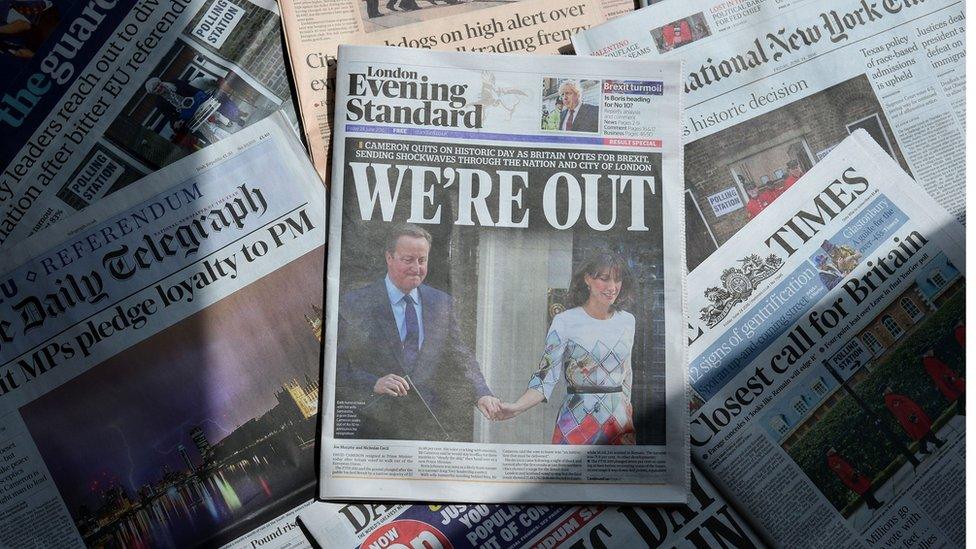
The UK's decision to leave the EU has some concerned about the outcome of the US election in November
A day before the Brexit referendum, two-thirds of Americans weren't aware it was on the horizon.
So the morning after was a jolt, not for just for Americans watching the markets tumble, wondering about the impact on their savings and pensions but also for liberal pundits and policy makers who are now fretting, external that the nationalist, isolationist populism that drove the Leave campaign can strike again in the US and bring Donald Trump to the White House.
So, should the presumptive Democratic nominee Hillary Clinton be worried?
Within a few hours of the Brexit results on Friday, two of her senior aides were on the phone with reporters trying to sound sanguine and confident but also keen to underline that if the Remain camp had underestimated the working class frustration, Clinton had heard it loud and clear on the trail in the US.
Her message according to the aides was: "I hear you, I feel you, I will fight for you."
But their key argument was that American voters will look across the pond at the uncertainty caused by the referendum and think twice about electing a businessman with too many bankruptcies and no political experience like Donald Trump.
In her stump speeches Mrs. Clinton often cites an Economist Intelligence Unit global risk analysis, external that lists a Trump presidency in the top 10 risks to the global economy, ahead of terrorism.
But the idea that in the quiet of the voting booth, voters will opt for stability over the unknown is precisely what drove the expectation that the Remain camp would win.
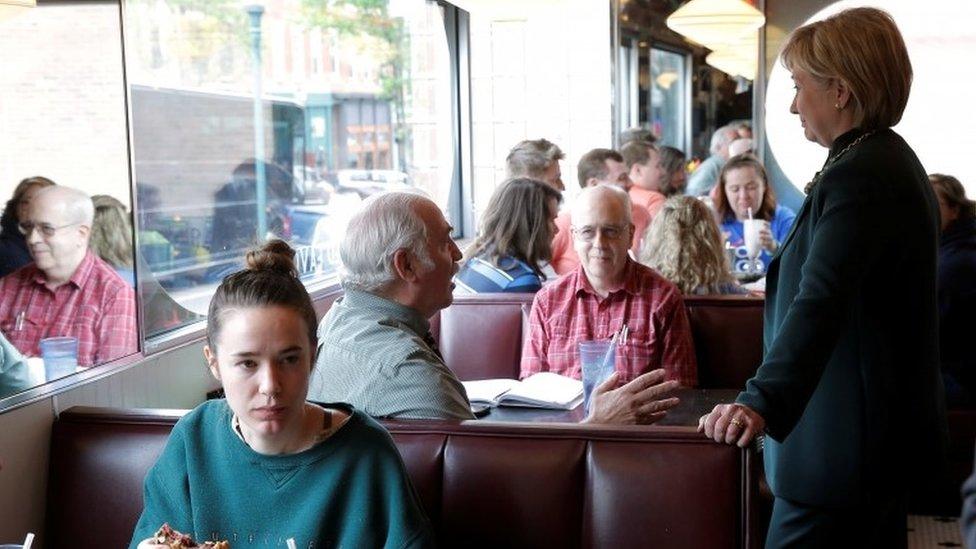
Mrs Clinton has vowed to fight for working-class Americans
So could voters in the US also spurn the safe choice and go for the insurgent promising in vague terms to make America great again?
The short answer is probably not, because of key differences between the presidential campaign in the US and the referendum campaign in the UK.
Much has been written about how the polls got it wrong in the UK on where the public stood with some suggesting they could be wrong in the US. But it was the betting markets that had it wrong.
Every poll, external showed it was a close race, even if Remain had a narrow lead most of the time. In the end it was turnout that won it in favour of Leave.
In the US, national polls have been showing Trump either plunging, by 15 points in a joint ABC/Washington Post poll released over the weekend, or trailing by five points in a WSJ/NBC news poll.
Those numbers are hard to overcome barely five months before Election Day, particularly because of what appear to be systemic problems in Mr Trump's campaign from staffing to financing but also because the breakdown of the polls points to big hurdles for Mr Trump.
National polls can be a great indicator of the mood in the country, but in the end, the US election is decided by swing states and won by electoral college votes.
There too, Mrs. Clinton is ahead in most but not all swing states - she's trailing in Pennsylvania. Crucially, she is ahead in Florida, which with its 29 electoral votes alone could tip the election in her favour.
The other key difference with the UK is attitudes towards immigration and the demographic make-up of the electorate.
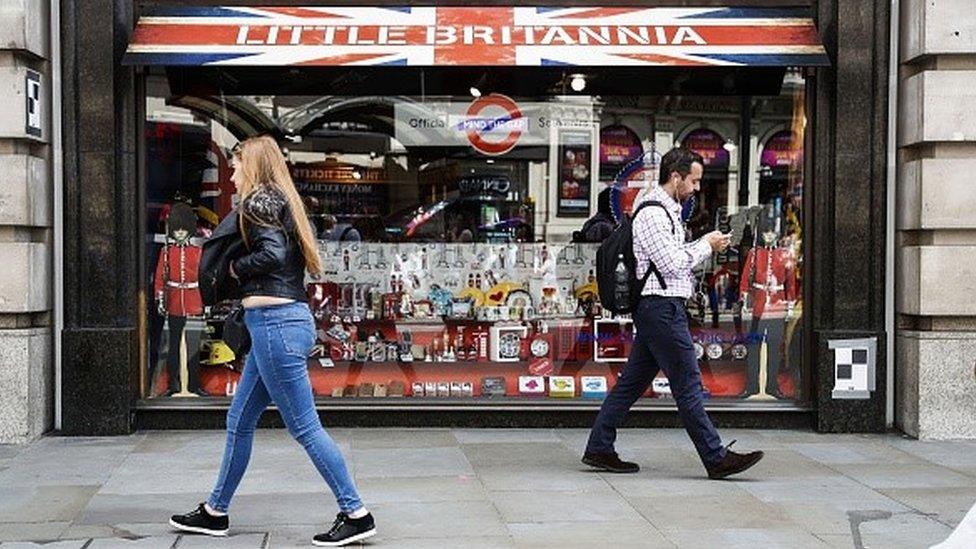
Those who voted to leave expressed a desire for more sovereignty
The vote in favour of Leave was driven by several factors, including an expressed desire for more sovereignty and less EU bureaucracy.
The head of the right-wing party UKIP Nigel Farage declared the day after the referendum to be the UK's Independence Day.
Sounds familiar? Mr Trump is giving a speech on Tuesday in Pennsylvania titled: "Declaring American Independence".
But there was also a clear and ugly anti-immigration undertone to the Brexit campaign, which Farage drove and capitalised on.
But while the anti-immigrant feelings of Brexiters can be compared to supporters of Trump's wall with Mexico and his calls for a ban on all Muslims entering the US, their numbers can't.

Clinton's plan for the working-class
Donald Trump scores much higher with white working-class voters. So what's Clinton's plan? It includes:
a $3tn infrastructure investment to create jobs
help with college fees
make firms share profits with employees
higher taxes on Wall St
increase the minimum wage.
But a recent gaffe, external - she called it a "misstatement" - when talking about the closure of coal mines in West Virginia demonstrates the gulf she has to bridge.

The UK electorate is 13% non-white whereas the US is 31% non-white, including Asia, Hispanic, African American and other minorities, according to a recent Pew Poll, external, making the 2016 electorate the most diverse ever. That works in Clinton's favour.
Republican pollster Whit Ayres last year wrote a blueprint for the GOP 2016's race, external, asserting that no Republican candidate could reach the White House without 40% of the Latino vote.
Mr Trump stands at 22% according to the latest WSJ/NBC news poll, external.
When it comes to African Americans, Clinton also leads by huge margins.
In the UK, the lack of cohesion and vision within the Remain camp was a key factor behind its loss, its leaders were hobbled by their internal politics, Cameron's framing of the debate was problematic, as was his inability to connect with Labour voters.
Labour Party Jeremy Corbyn's half-hearted support for the Remain campaign was the final nail. He even refused to campaign with Mr Cameron.
If Clinton can still be a stilted campaigner by her own admission, the full weight of the Democratic Party is lining up behind her - and her message will get a huge boost from President Barack Obama, whose favourability ratings just hit 56% and who has made clear he's eager to hit the trail.
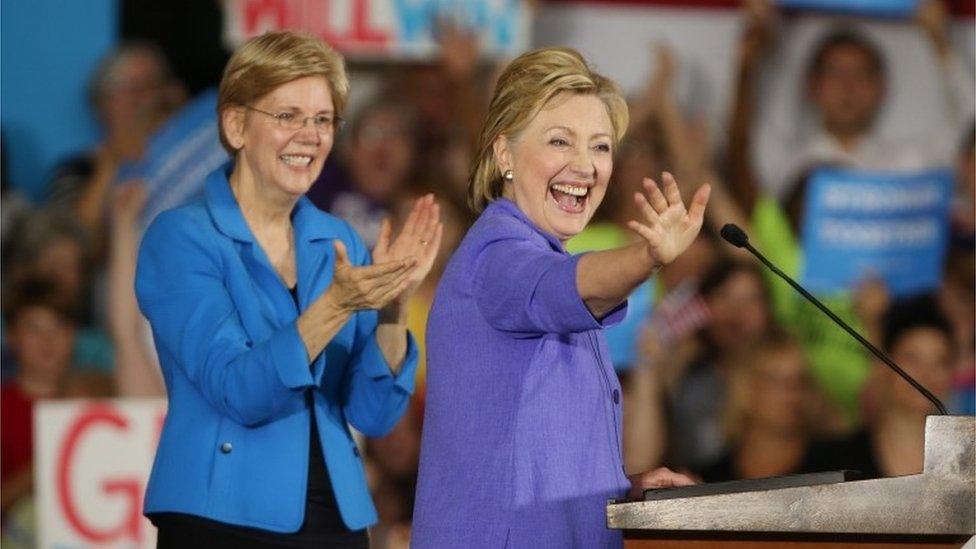
Left-wing firebrand Senator Elizabeth Warren joined Hillary Clinton on the campaign trail
That leaves Clinton's Democratic rival in the primaries, Senator Bernie Sanders, who has not yet endorsed her although he has said he will vote for her in November.
If he only gives her lukewarm support and refuses to campaign with her, he could deprive her of the backing of the 12 million supporters who voted for him in the primary. So will Sanders be Clinton's Corbyn and undermine the strength of the campaign against Trump?
Clinton has probably check-mated him already with the help of the popular, far-left firebrand Senator Elizabeth Warren, who endorsed the presumptive Democratic nominee quickly after the last primary.
The two women brought highly energised supporters to their feet during their first rally together in Cincinnati, Ohio, on Monday as they took turns throwing rhetorical bombs at Trump.
Clinton, seen by many as the establishment elite, has now added a definite whiff of populism to her campaign.
Finally, a referendum about an issue is different from an election where voters will choose a person - that is both bad news and good news for Clinton.
Her approval ratings are low but Trump's approval ratings are even worse and not getting better. But emotions play a role in both and Mrs. Clinton can't afford to get complacent.

More on Trump v Clinton
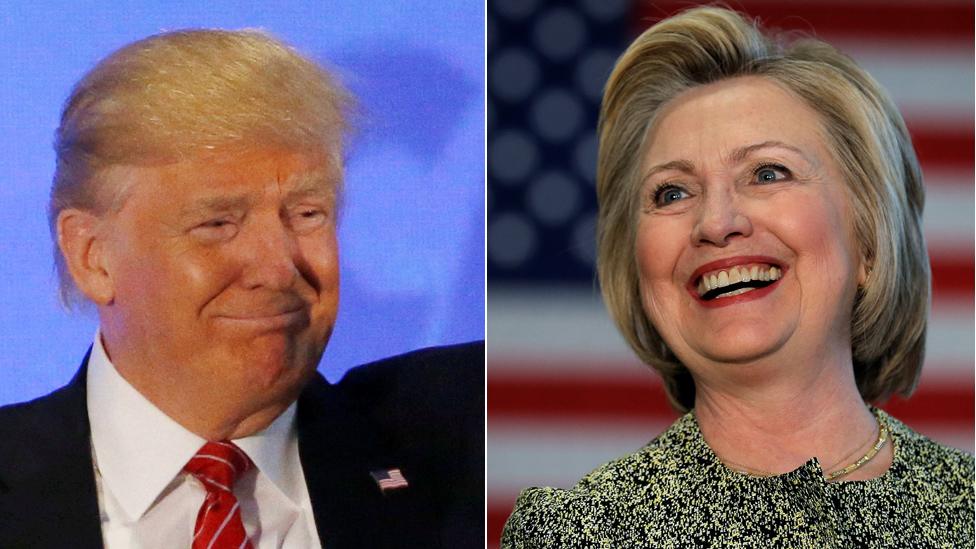

The economic recovery in the US since the 2008 financial crisis has been stronger than in the UK and Europe generally, and that accounts in part for President Obama's high approval ratings.
But even as early as last summer, a senior Clinton aide told me they were keeping a close eye on wild cards, like a global economic downturn that could hit the US before election day and rattle anxious voters.
That probability has just risen with the economic and financial fallout of Brexit.
But Clinton's biggest issue remains one of messaging.
She can offer specific plans, speak about solutions or about love and kindness, external to counter Trump but she still lacks an inspiring, overarching message or narrative.
Ironically her current slogan "Stronger Together" is the one that the Remain campaign used, without much vision for how they could actually make the middle-class stronger by staying in the EU.
Slogans and soundbites matter because just like the Leave campaign demonstrated it is often raw emotions, not facts that move voters.
Clinton's own supporters or even lukewarm endorsers might get complacent when they look at her lead in the polls and stay home in November, confident she will win anyway.
The presumptive Democratic nominee will need to play on their emotions to push a huge turnout in November, instilling in voters the fear of Mr Trump without reducing her message to a scaremongering campaign.